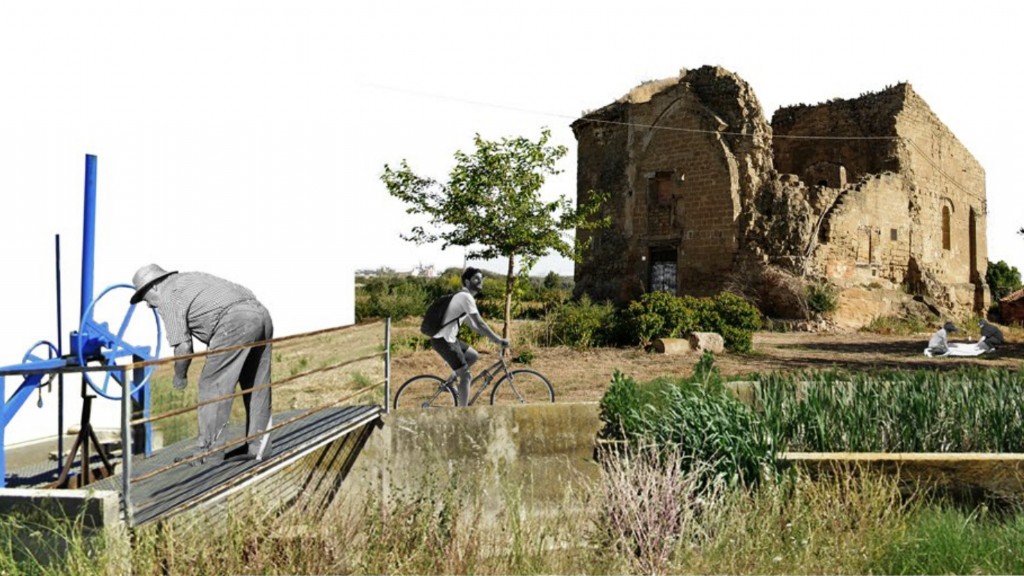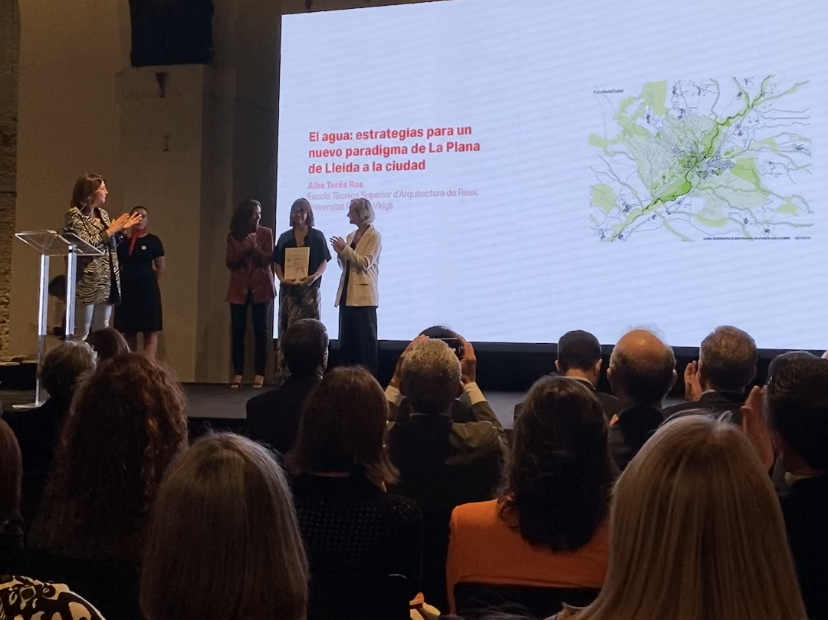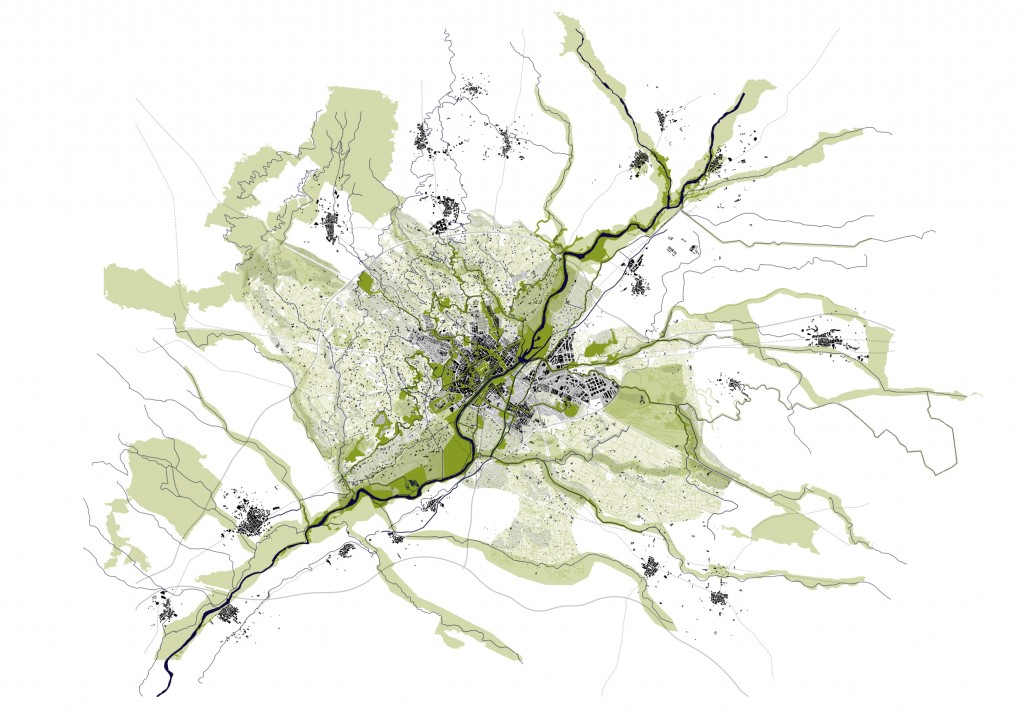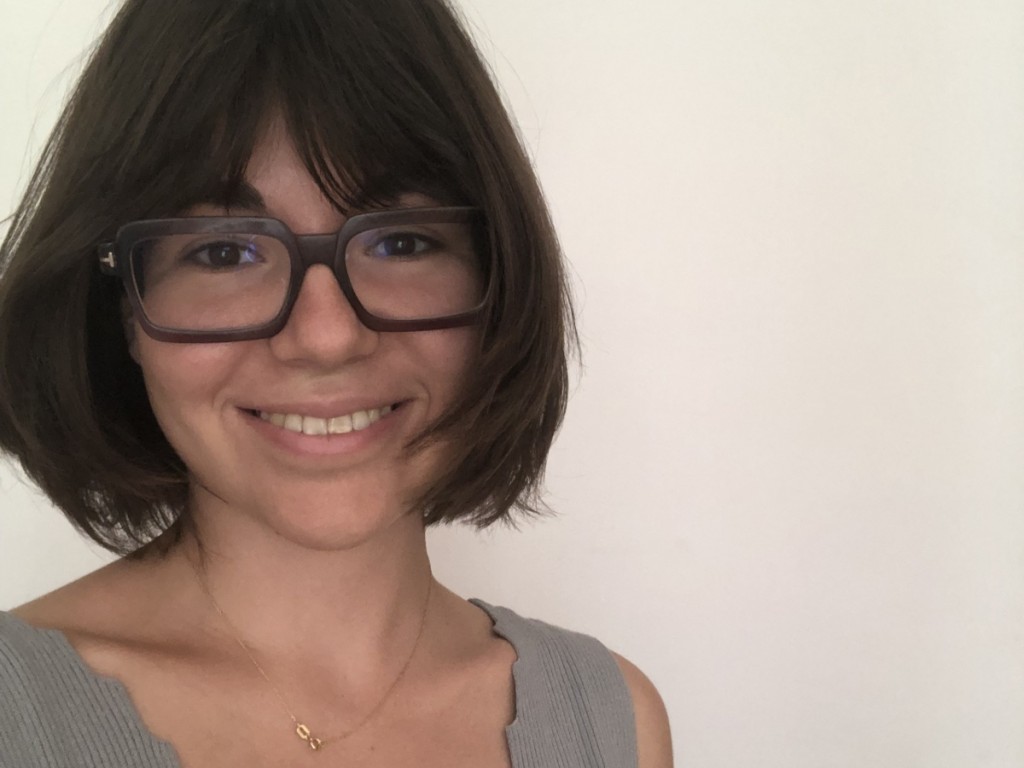25/09/2023
URV student Alba Terés Ros, awarded a prize at the Spanish Architecture and Urban Planning Biennial
Her project puts forward a proposal to connect the agricultural, urban and natural ecosystems of La Plana, L'Horta and the city of Lleida

Her project puts forward a proposal to connect the agricultural, urban and natural ecosystems of La Plana, L'Horta and the city of Lleida
Alba Terés Ros, a student at the URV’s School of Architecture, was awarded one of the prizes in the bachelor’s degree thesis category of the 16th Me-dio Pla-zo Spanish Architecture and Urbanism Biennial in Seville on Thursday. The prize was awarded in recognition of the contribution of her thesis, “Water: strategies for a new paradigm. From the Plana de Lleida to the city.” The thesis is based on the premise that a paradigm shift is needed to overcome the dichotomy between countryside and city and to respond to the major crises of climate emergency, biodiversity and the depletion of a finite territory.
In this edition, the aim of the Spanish Biennial of Architecture and Urbanism was to reflect on how the actions of the present construct the habitat of the future and to predict what the near future will be like on the basis of the most outstanding examples of recent architecture in Spain.

With this in mind, Alba Terés argues that the dynamics of urbanisation have consolidated the fragmentation between natural, agricultural and urban ecosystems, “which are not adapted to current and global requirements.” For this reason, her work retrieves these ecosystems of the Plana de Lleida (200,000 hectares), L’Horta (15,000 hectares), and the city of Lleida, and at the same time preserves the compact city model.

To do so, it identifies water as an “identifying and structuring” feature of the region because of its persistence and capacity to reshape damaged ecosystems. The project discusses various strategies that connect agricultural, natural and urban spaces and integrate habitats with natural and cultural heritage through the Mariola district of Lleida.
More specifically, these strategise are to reduce road mobility by 50%; to regenerate 70% of the urbanised land and incorporate 280 green buildings (with a 15% increase in vegetation cover); to construct a vertical communication system with lifts and walkways on western facades, to re-inhabit 197 unoccupied homes, and to incorporate vegetable gardens in public spaces in the neighbourhood and to recover eight hectares of productivity in L’Horta.

